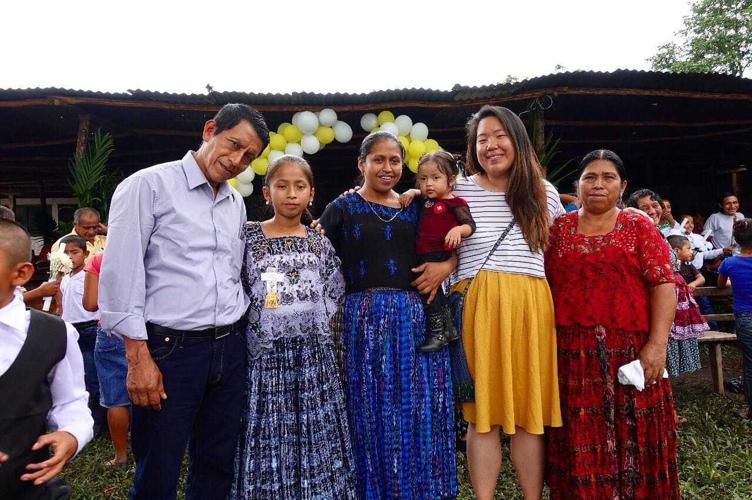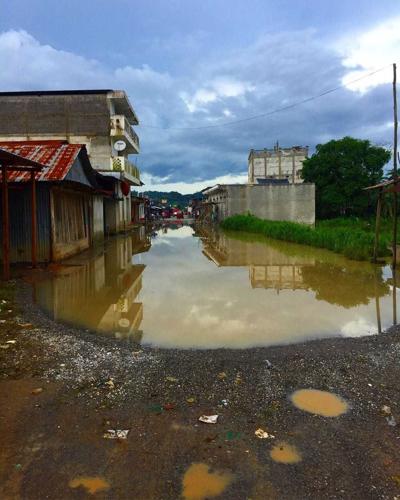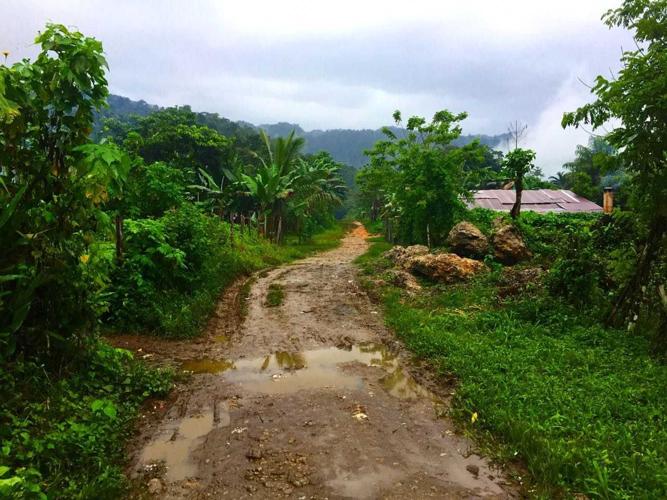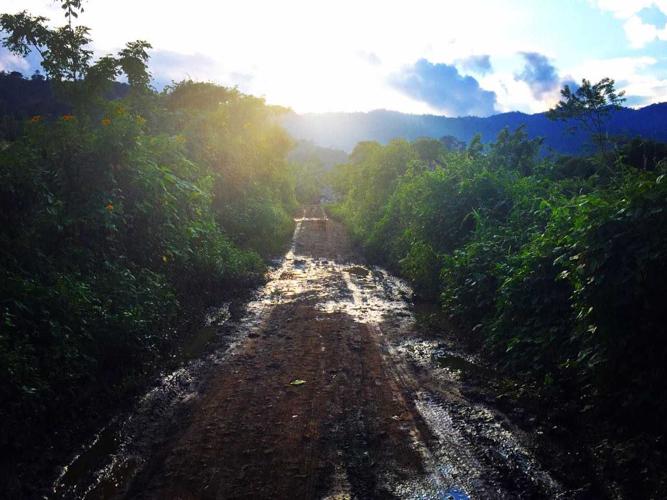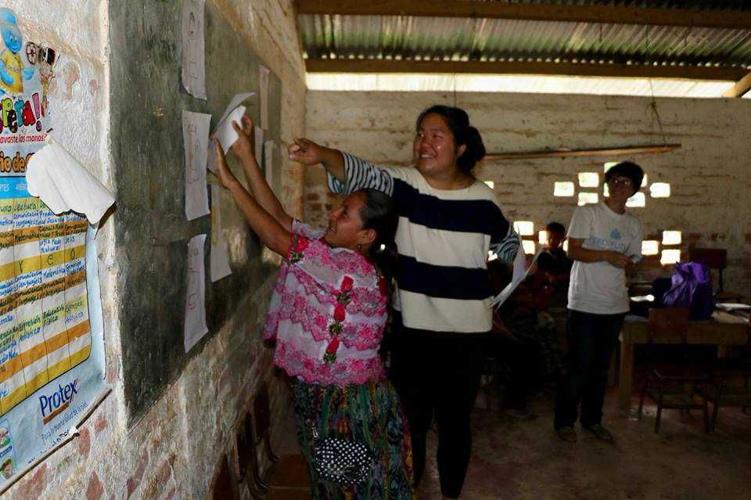After almost a year as a Peace Corps volunteer in a rural Guatemalan community, Yi Lian Klimecki has learned much.
1. Don't leave the house without rubber boots — "It's an 80 to 90 percent chance that I will be full of regrets later when it starts raining or I step into a mud puddle," she says.
2. Leave every device plugged in when she's not home, so she doesn't miss charging opportunities if her host family runs the generator.
3. Enthusiasm from foreigners doesn't necessarily motivate nurses who haven't been paid in a few months.
What she does
Klimecki serves in the northern Uspantán region of Guatemala as a maternal and child health volunteer, although she has also learned that flexibility is key to the Peace Corps experience.
In a community of about 2000, Klimecki, 25, does a lot of "training trainers," working with medical professionals in the community's Health Center and teachers in local schools. Although Klimecki has degrees in nursing and biology from Seattle University and spent about a year as a nurse at Banner-University Medical Center, she's not teaching nurses about nursing. Instead, she focuses on learning styles and how to engage listeners with visuals, especially with the prevalence of illiteracy in her community.
Language barriers create an added challenge. Most members of the community speak Q'eqchi', a Mayan language, but Klimecki and other employees at the Health Center speak mostly Spanish, the second language for the community.
She makes it work.
Klimecki returned to Tucson for the New Year, but when she returns to Guatemala in the coming days, she'll continue her work with teachers to develop an agriculture and life-skills curriculum for middle and high school students and with builders to plan the construction of a community center and garden project.

Yi Lian Klimecki facilitates a training in Guatemala, where she serves with the Peace Corps.
Why it matters
In the coming year, she hopes to do more work with midwives in the area. She said the local health center (which she likens to a clinic) estimates that about 60 percent of births in the region are attended by midwives. Because many of these women have delivered the majority of children and grandchildren in their communities, they are trusted leaders with influence, Klimecki says.
She hopes that by teaching midwives about preventative health — modifying your diet to control diabetes, for example — the women can then pass on those teachings to their communities.
She also hopes to do some work around blood pressure, an area of interest for the midwives, she says. High blood pressure is a symptom of preeclampsia, a dangerous pregnancy complication that can lead to death if not addressed. Because the midwives usually lack blood pressure cuffs (and many of them lack the ability to read those cuffs) Klimecki says preeclampsia does cause a number of maternal deaths in the region.
"If they were taking pregnant women's blood pressure more regularly, they could detect (preeclampsia) earlier," she says. "And that is critical because we are so far away from the nearest hospital."
The nearest hospital, by the way, is about a four- or five-hour drive, depending on road conditions. If a truck gets stuck in the mud, no one can pass.

This is a road turned to mud by persistent rains in Guatemala.
Klimecki says she is working with a nurse who has developed color-coded cuffs, but those can't measure everything and there is still the issue of funding, she says.
Ultimately, though, she wants to empower the midwives, medical professionals and teachers she works with to make changes that will actually last when she goes home.
Why she wanted to join the Peace Corps
As a Peace Corps volunteer, Klimecki says she's not allowed to provide hands-on care — something she didn't expect to miss.
"I thought the Peace Corps would be confirmation that, 'Yes, I want to go into public health,' but now I want to go back and work as a nurse for a bit," she says, adding that she plans to eventually get an advanced medical degree. In what, she hasn't yet decided.
A Salpointe Catholic High School graduate, Klimecki owes her parents for her interest in both science and other cultures.
Her dad works for the College of Pharmacy at the University of Arizona and her mother was a jewelry buyer for the United Nations Association of Southern Arizona Center (UNICEF store) when Klimecki was younger.
"I took my first steps in that store," she says. "I've always been interested in folk art and other cultures just because I literally grew up in that store surrounded by volunteers who were mostly older women, so I had very strong women role models growing up. And then my dad was always into science, and he had me keeping a lab notebook. You know those crystal kits you can grow and all of those kiddo activities? He would have me keeping a very detailed science journal for each of those things."
In high school, Klimecki spent six weeks in Nicaragua with Amigos De Las Americas and in college she spent a summer shadowing healthcare workers in a Peruvian clinic. Adopted as a baby from China, Klimecki thinks that maybe on a subconscious level, her adoption has also contributed to her interest in international cultures.
The Peace Corps was always at the back of her mind.

The downtown area of the community where Tucsonan Yi Lian Klimecki serves with the Peace Corps.
What life is like
Because her mother collected Guatemalan textiles and the country had a maternal health program, she applied to volunteer in Guatemala.
"Where I am, they just got the road linking them to another town with electricity around 2000," she says. "My host dad remembers when they brought the first car they had ever seen in real life up to the community and how big of a deal that was."

This is a road near the Yi Lian Klimecki's home in Guatemala.
Pickup trucks now commute between communities as transports, and Klimecki says she can usually hitch a ride with the health center truck or ambulance. But sometimes if she needs to help another volunteer, she'll hike an hour or so between communities.
Although her community doesn't have electricity, generators and solar panels keep cell phones charged. It's expensive to run the generators consistently and cloudy days can hinder the output of the solar panels. Plus, Klimecki jokes that one of her little host sisters watches a whole lot of TV, zapping the solar panel charge.
She lives with a host mom, dad, and three little sisters ages 10, 7 and 1. Even though she's a teacher, she says she learned just as much from her host family.
Her family eats a lot of beans, rice, tortillas, eggs and soup. Klimecki mostly cooks for herself — any vegetables she can get — so she doesn't interfere with the family's schedule.
When she hangs her clothes out to dry, it may appear that the sun did its work — until she puts them away. Often, they're still damp.
"Every day is an adventure, even if I'm just pulling money out of the bank, which is in Uspantán about a four-to-five-hour bus ride," she says. "I go about once a month. I try to limit myself because it's not very fun to go. But at least the views are beautiful."


